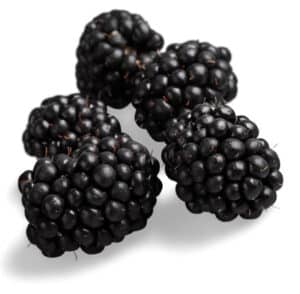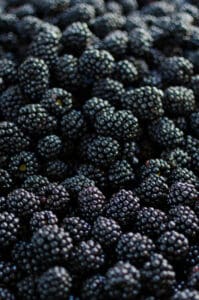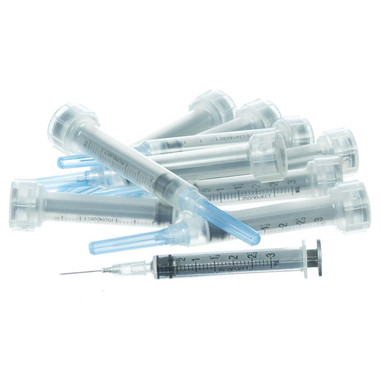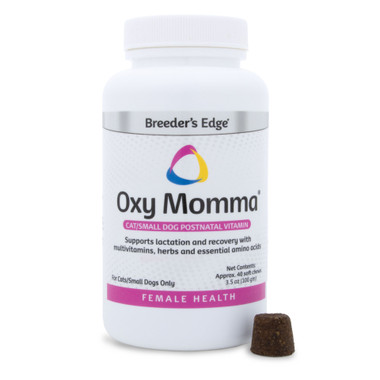Can Dogs Eat Blackberries
Estimated 0 min read

Dog eats blackberry
Read Before Giving Your Dog Blackberries
- Blackberries are a safe, nutrient-packed snack for dogs when given in moderation
- Be cautious of xylitol content; stick to recommended portions based on your dog’s size
- Ensure your pup’s safety by properly preparing blackberries and considering their individual needs

Bowl of juicy blackberries
Can dogs eat blackberries?
As a devoted dog owner, you might find yourself wondering if it’s okay to share a few juicy blackberries with your furry companion. After all, who can resist those pleading puppy eyes when you’re about to pop a sweet, succulent berry into your mouth? The good news is that blackberries are generally considered safe for dogs to eat, as they are not toxic to our canine friends.Unlike some fruits that contain harmful compounds or seeds that can cause digestive issues, blackberries are a relatively low-risk treat for dogs. In fact, these delightful little berries are surprisingly low in sugar and calories compared to many other fruits, making them a smart choice for health-conscious pet parents looking to indulge their pup’s sweet tooth without going overboard.Health Benefits of Blackberries for Dogs
While blackberries may seem like nothing more than a tasty treat for your furry friend, these small, juicy fruits are actually packed with an impressive array of nutrients that can provide some remarkable health benefits for dogs. From supporting a robust immune system to promoting better digestion, blackberries have a lot to offer when it comes to your pup’s overall wellness.
Blackberries contain antioxidants
A Potent Antioxidant Boost
One of the most significant nutritional advantages of blackberries is their high concentration of antioxidants. These powerful compounds work to neutralize harmful free radicals in your dog’s body, which can otherwise contribute to cellular damage and chronic inflammation over time. By incorporating blackberries into your dog’s diet, you’re helping to strengthen their natural defenses against disease and support a more effective immune response.The primary antioxidants found in blackberries are anthocyanins, which are responsible for the fruit’s deep, rich color. These flavonoids have been shown to possess anti-inflammatory, anti-viral, and anti-cancer properties, making them a valuable addition to your dog’s dietary regimen. Additionally, blackberries contain other potent antioxidants like ellagic acid and quercetin, which further contribute to their immune-boosting effects.
Their fiber content is a benefit for your dog digestive system
Rich in Fiber
Another key benefit of blackberries for dogs is their high fiber content, which plays a crucial role in maintaining a healthy digestive system. The fiber in blackberries helps to bulk up your dog’s stool, making it easier for them to pass waste regularly and reducing the risk of constipation. Moreover, fiber can help your dog feel fuller and more satisfied after meals, which can be particularly beneficial for dogs who are trying to maintain a healthy weight.The type of fiber found in blackberries is primarily soluble fiber, which dissolves in water and forms a gel-like substance in the digestive tract. This helps to slow down the absorption of sugar and other nutrients, preventing rapid spikes in blood sugar levels. Soluble fiber also acts as a prebiotic, feeding the beneficial bacteria in your dog’s gut and promoting a healthy balance of intestinal flora.Packed with Essential Vitamins and Minerals
In addition to their impressive antioxidant and fiber content, blackberries are also an excellent source of various essential vitamins and minerals that support multiple aspects of your dog’s health. For instance, blackberries are rich in vitamin C, which is crucial for maintaining healthy skin, coat, and joints. They also contain vitamin K, which is necessary for proper blood clotting and bone metabolism.Blackberries are also a good source of B-complex vitamins, including folate, niacin, and pantothenic acid. These vitamins play a vital role in energy production, nervous system function, and the synthesis of important compounds like hormones and neurotransmitters. When it comes to minerals, blackberries offer a significant amount of manganese, which is essential for healthy bones, cartilage, and connective tissue.
Blackberries can aide in inflammation
Anti-Inflammatory
Another compelling reason to include blackberries in your dog’s diet is their potential to combat inflammation throughout the body. Chronic inflammation is a common underlying factor in many canine health problems, from arthritis and allergies to digestive disorders and skin conditions. The anti-inflammatory compounds found in blackberries, such as ellagic acid and quercetin, can help to soothe irritated tissues and promote a more balanced inflammatory response.By reducing inflammation, blackberries may help to alleviate symptoms associated with various health issues and improve your dog’s overall quality of life. For example, the anti-inflammatory effects of blackberries may help to reduce joint pain and stiffness in dogs with arthritis, while also supporting better gut health and reducing the severity of skin irritations caused by allergies or other inflammatory conditions.Risks of Giving Blackberries to Dogs
While blackberries are generally considered a safe and nutritious treat for dogs, it’s important to be aware of the potential risks that come with feeding these fruits to your furry friend.By understanding the science behind these concerns and taking the necessary precautions, you can help ensure that your dog enjoys the benefits of blackberries without any unpleasant side effects.Let’s dive into the three main risks associated with feeding blackberries to dogs and explore the biological mechanisms behind each one.
Heed caution to toxin possibilities
Xylitol Toxicity
One of the most significant risks of feeding blackberries to dogs is the presence of xylitol, a naturally occurring sugar alcohol that can be found in small quantities in various fruits, including blackberries. While xylitol is harmless to humans, it can be toxic to dogs.When a dog ingests xylitol, it is rapidly absorbed into the bloodstream, triggering a massive release of insulin from the pancreas. This insulin surge leads to a sharp drop in blood sugar levels (hypoglycemia), which can cause a range of symptoms, including vomiting, weakness, loss of coordination, seizures, and in severe cases, liver failure. The mechanism behind this toxicity is related to the fact that xylitol stimulates insulin release in dogs much more strongly than it does in humans, making them particularly susceptible to its effects.It’s crucial to note that while blackberries do contain xylitol, a dog would need to consume an enormous quantity of the fruit to experience toxic effects. However, it’s still essential to be aware of this risk and to monitor your dog closely if they accidentally ingest a large amount of blackberries.Digestive Distress
Another potential risk of feeding blackberries to dogs is the possibility of gastrointestinal upset, which can occur when your pup consumes too much fiber too quickly. Blackberries are naturally high in fiber, containing both soluble and insoluble forms. While moderate amounts of fiber can benefit your dog’s digestive health, an excess can lead to unpleasant symptoms such as vomiting, diarrhea, and constipation.The science behind this risk lies in the way fiber interacts with your dog’s digestive system. Soluble fiber, which is abundant in blackberries, dissolves in water and forms a gel-like substance that can slow down digestion and absorb water from the intestines. When consumed in excess, this can lead to loose stools or diarrhea. On the other hand, insoluble fiber, which is also present in blackberries, adds bulk to the stool and can cause constipation if your dog isn’t drinking enough water.Additionally, the high fiber content in blackberries can lead to fermentation in your dog’s gut, as the beneficial bacteria in their intestines break down the fiber. This fermentation process produces gases like hydrogen, carbon dioxide, and methane, which can cause bloating, discomfort, and flatulence.To minimize the risk of digestive distress, it’s essential to introduce blackberries gradually into your dog’s diet and to stick to the recommended serving sizes based on their weight.
Avoid choking by managing size portions
Choking Hazards
While blackberries are generally soft and easy for most dogs to chew, they can still pose a choking hazard, particularly for small breeds or dogs who tend to gulp their food without proper chewing. The round shape and size of blackberries make them easy to swallow whole, which can lead to a blockage in your dog’s throat or esophagus.When a dog swallows a whole blackberry, it can become lodged in their airway, partially or completely obstructing the flow of air to their lungs. This can cause immediate distress, coughing, gagging, and difficulty breathing. If the blockage is not removed quickly, it can lead to asphyxiation and even death.To reduce the risk of choking, it’s crucial to prepare blackberries in a way that makes them easier for your dog to chew and swallow safely. This may involve mashing or pureeing the berries, cutting them into smaller pieces, or even freezing them to create a treat that encourages more thorough chewing. As always, it’s important to supervise your dog closely when they’re enjoying any new food to ensure they’re consuming it safely.
Waiting for his serving of blackberries
How to Safely Give Blackberries to Dogs
Now that you’re aware of the potential risks associated with feeding blackberries to your dog, it’s time to focus on how to safely incorporate these nutritious fruits into your pup’s diet. By following a few simple guidelines and being mindful of your dog’s individual needs, you can ensure that they enjoy the many benefits of blackberries without any unpleasant side effects. Let’s dive into the nitty-gritty of serving sizes, preparation methods, and creative ways to make the most of these delightful berries.Recommended Serving Sizes of Blackberries for Dogs
The first and most important rule when it comes to feeding blackberries (or any treat) to your dog is moderation. While these berries are packed with nutrients and antioxidants, they should still only make up a small portion of your pup’s overall diet.As a general guideline, treats should account for no more than 10% of your dog’s daily caloric intake, with the remaining 90% coming from a balanced, species-appropriate diet.So just how many blackberries can dogs have? The answer depends on their size and weight. Here’s a breakdown of recommended daily serving sizes based on your dog’s size category:- Extra-small dogs (2-20 lbs): 1-2 blackberries
- Small dogs (21-30 lbs): 2-3 blackberries
- Medium dogs (31-50 lbs): 3-5 blackberries
- Large dogs (51-90 lbs): 5-6 blackberries
- Extra-large dogs (91+ lbs): A small handful of blackberries
Preparing Blackberries for Dogs
Once you’ve determined the appropriate serving size for your dog, it’s time to focus on preparing the blackberries in a way that minimizes any potential risks. Here are a few tips to keep in mind:- Always choose fresh, ripe blackberries that are free from mold or decay. Wash them thoroughly under cool, running water to remove any dirt, pesticide residue, or other contaminants.
- Remove any stems, leaves, or other debris from the berries, as these can be difficult for your dog to digest and may cause gastrointestinal irritation.
- For small dogs or those who tend to gulp their food, consider mashing or pureeing the blackberries to prevent choking. You can use a fork, a blender, or a food processor to create a smooth, easy-to-swallow consistency.
- If your dog prefers a little crunch, you can also try cutting the blackberries into smaller pieces. This can help encourage chewing and reduce the risk of choking, especially for larger dogs.
- For a refreshing summer treat, try freezing whole or mashed blackberries in an ice cube tray. These frosty bites can help keep your dog cool and hydrated while providing a nutritious snack.
Creative Ways to Incorporate Blackberries into Your Dog’s Diet
Now that you know how to prepare blackberries safely for your pup, it’s time to get creative with how you serve them. Here are a few ideas to get you started:- Use blackberries as a topper for your dog’s regular meals. Simply sprinkle a few mashed or pureed berries over their kibble or wet food to add a burst of flavor and nutrition.
- Mix blackberries with other dog-safe fruits and vegetables to create a colorful, antioxidant-rich fruit salad. Some great options include blueberries, strawberries, and chunks of seedless watermelon.
- Blend blackberries with plain, unsweetened yogurt (if your dog tolerates dairy) and freeze the mixture in a Kong toy or silicone mold for a long-lasting, interactive treat.
- Use mashed blackberries as a natural food coloring for homemade dog treats. You can add them to recipes for biscuits, pupcakes, or even frozen yogurt to create visually appealing, nutrient-dense goodies.
Banixx for Dog Lovers
From providing expert advice on the latest health trends to offering practical tips for keeping your dog happy and thriving, we’re your go-to resource for all things pet-related.So why not stick around and discover even more ways to show your pup just how much you care?If you are interested in how to maintain yourdog’s nails/claws, or handle anear infection, we cover that. Or are you interested in more quirky items ? such ashow long can a dog go without peeing, orWhy does my dog drink from a toilet? Yes, delve into those areas for you too!Sources
https://www.petmd.com/dog/nutrition/can-dogs-eat-blackberries
https://www.dutch.com/blogs/dogs/can-dogs-eat-blackberries
https://be.chewy.com/can-dogs-eat-blackberries-everything-you-need-to-know/
https://www.metlifepetinsurance.com/blog/pet-health/can-dogs-eat-blackberries/
https://www.napo.pet/blog/can-dogs-eat-blackberries
https://www.dogster.com/dog-nutrition/can-dogs-eat-blackberries



















